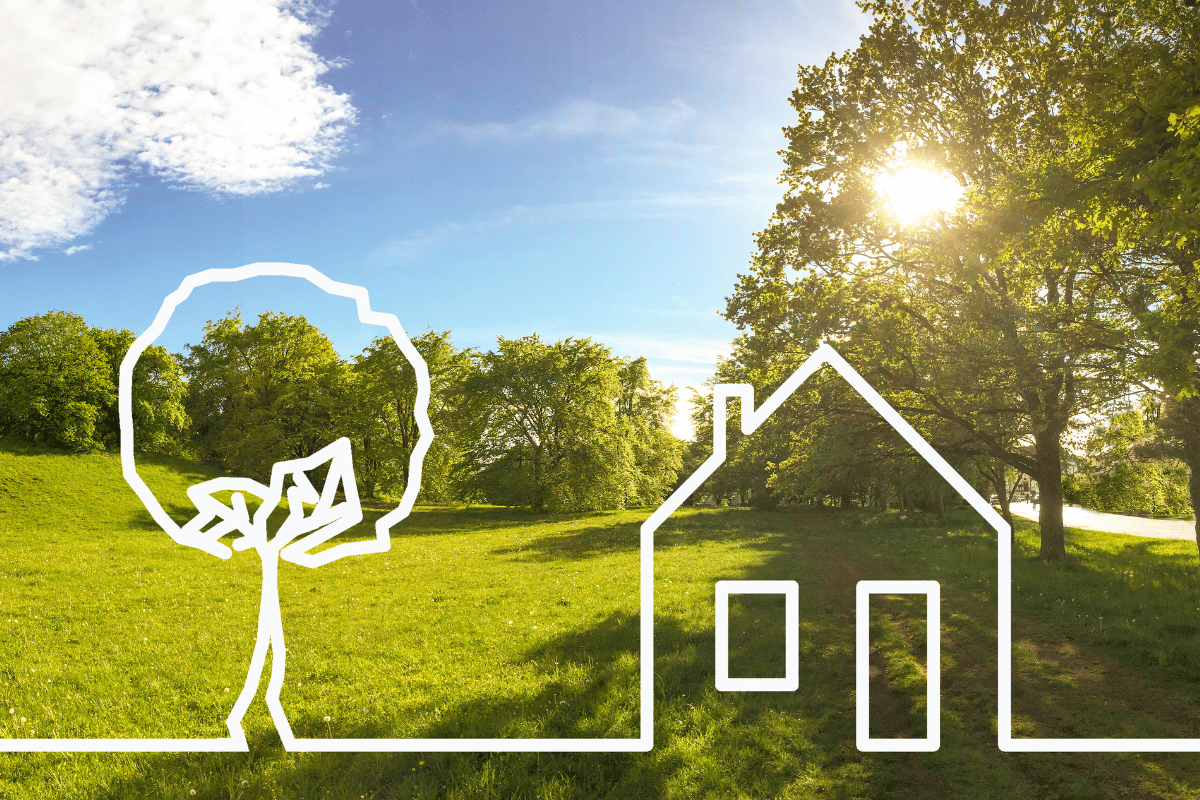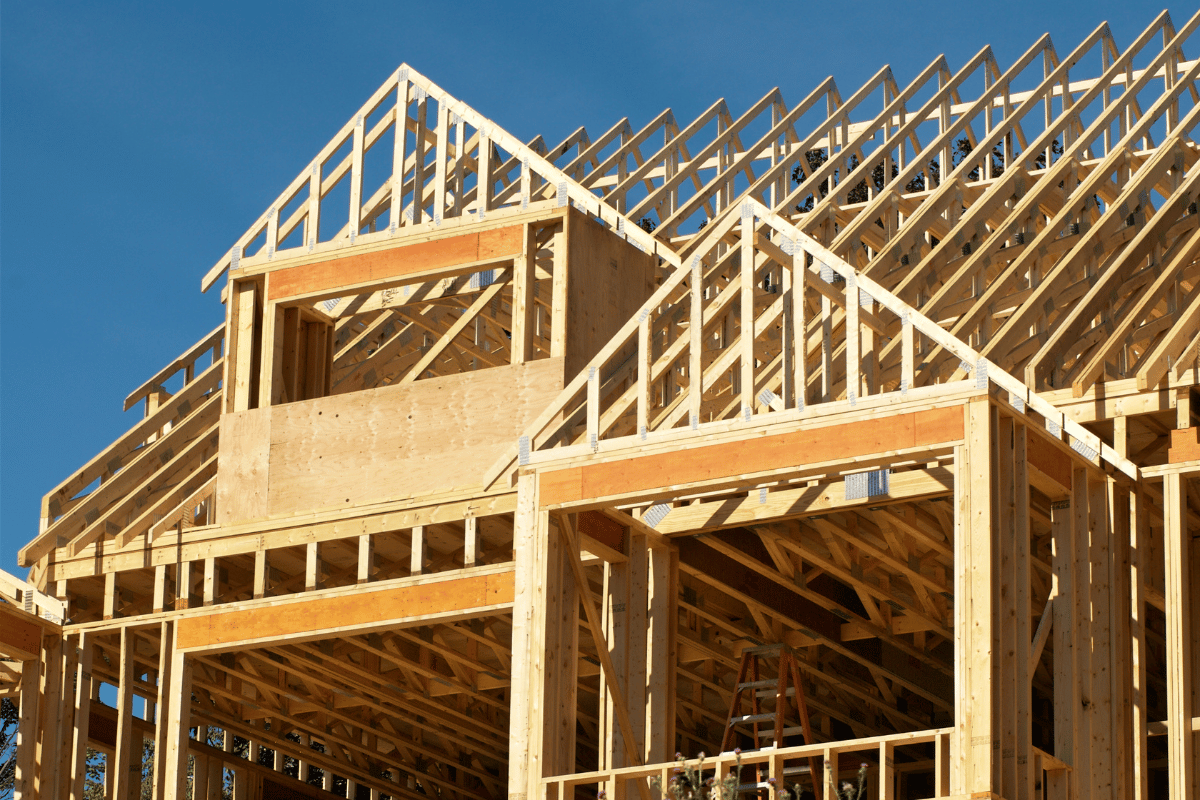Michigan is one of the last great frontiers. There is a lot of valuable and affordable land. For many, it would be amazing to buy land and build a home on it, but it can also seem like a daunting task and with good reason. It is a lot simpler to purchase a home that is already built. But if you have ever looked for a prebuilt, ‘used’ home, you know finding the right one can be pretty daunting as well.
As they say, ‘knowledge is power.’ Here are the benefits, key factors, and finally some of the average costs so that you know most everything you need to know to buy and build your own little oasis in Michigan.
Potential benefits

✔ Affordability - Compared to some other states, Michigan offers more affordable land prices. This can provide an opportunity for cost savings, especially if you are willing to build in less densely populated areas.
✔ Customization - No more chopped up living spaces, kitchen with weird designs, and tiny bedrooms with no closets. Building your own home allows you to customize it according to your preferences and needs. You have control over the layout, design, and features, ensuring that the final product suits your lifestyle and your aesthetics.
✔ Choice of Location - Michigan offers a diverse range of landscapes, from waterfront properties to wooded areas. Building your own home allows you to choose the location that best suits your preferences, whether it's near a lake, in the countryside, or in a suburban neighborhood.
✔ Potential for Increased Property Value - If you choose the location wisely and the real estate market is favorable, your property will likely appreciate in value, in Michigan, over time. This will likely provide a good return on investment.
✔ Quality Construction - Building your own home allows you to oversee and ensure the quality of construction. You can choose reputable builders and materials to meet your standards.
✔ Energy Efficiency - Building a new home allows you to incorporate the latest energy-efficient technologies and materials. This can result in a home that is more environmentally friendly and cost-effective in terms of energy consumption.
✔ Modern Amenities - New construction allows you to incorporate the latest amenities and technologies into your home, such as smart home systems, energy-efficient appliances, and modern design trends.
✔ Personal Satisfaction - There is a unique sense of accomplishment and personal satisfaction that comes with designing and building your own home. It becomes a reflection of your taste, style, and vision.
✔ Financial Flexibility - Building a home allows for greater financial flexibility. You can choose the materials and features that fit your budget, and you have control over the construction timeline, which can help with financial planning. It can be difficult to control that spending. It can be easy to, ‘why not’ we aren’t likely to build another home so let’s get and do what we want which can lead to being ‘house-poor.’
✔ Lower Maintenance Costs - New homes typically require less maintenance in the early years, as everything is new and under warranty. This can result in lower maintenance costs compared to buying an existing home.
Key Considerations

- Zoning and Land Use Regulations: Check with the local planning department and ask your 616 REALTY Agent to help you understand the zoning regulations for the specific parcel of land you are interested in. Zoning regulations dictate what type of structures can be built on the land and other requirements. Failing to thoroughly research the property, including zoning regulations, environmental factors, and potential issues with utilities, can lead to costly problems down the road.
- Land Survey: Consider having a professional land survey done to determine the exact boundaries of the property and identify any potential issues.
- Environmental Considerations: Assess any environmental factors that may affect your ability to build on the land. This could include wetlands, flood zones, or other environmental restrictions.
- Permits and Approvals: Obtain the necessary permits and approvals from local authorities. This may include building permits, septic permits, and other approvals depending on your specific plans.
- Utilities: Check the availability of utilities such as electricity, water, and gas. If the land is not already connected to these services, you'll need to factor in the cost of extending utility lines to your property.
- Septic System: If the land does not have access to a municipal sewer system, you may need to install a septic system. The cost will depend on the type and size of the system required.
- Well Installation: If the land does not have access to a municipal water supply, you may need to drill a well. Costs for well installation can vary based on factors such as depth and water quality.
- Electrical and Plumbing Costs: These costs will depend on the size and complexity of your building plans. Consult with licensed professionals to get accurate estimates for electrical and plumbing work.
- Road Access and Maintenance: Ensure that the land has legal access, and if not, determine the cost and feasibility of creating a driveway or road to access the property. If the property is in a rural area with private roads, inquire about road maintenance responsibilities and costs.
- Soil Testing: Conduct soil testing to determine the soil's composition and suitability for construction. This is particularly important for the installation of a septic system.
- Insurance: Consider obtaining insurance coverage for your construction project and the property.
- Costs and Budget: Do your due diligence on costs and budget. Underestimating the costs of construction, permits, utilities, and other expenses can strain your budget. It's crucial to obtain accurate cost estimates and build a realistic budget that includes contingencies. Having a poorly defined or unrealistic budget can lead to financial difficulties during the construction process. Clearly outline your budget, accounting for all potential costs, and ensure that you have the financial means to cover unexpected expenses.
The cost of utilities

Installing electricity, water, and sewer on a piece of land for building a house can vary widely depending on several factors, including the location, the distance to existing utility connections, the specific requirements of the property, and local regulations. Additionally, prices may change over time due to inflation and other economic factors.
To get an accurate estimate, it's recommended to contact local utility providers, contractors, or engineering firms in Michigan. They can provide you with detailed cost estimates based on the specific characteristics of your land and project. They will take into account factors such as the length of utility lines, the type of terrain, and any permits or fees required by local authorities.
Remember to obtain multiple quotes and do thorough research to ensure that you have a comprehensive understanding of the costs involved in bringing utilities to your property in Michigan.
Here are some rough, ballpark estimates on potential costs based on national averages:

Electricity
The cost of bringing electrical power to a property can range from $1,000 to $5,000 or more per lot. Factors such as the distance to the nearest power source, the need for transformers, and the type of service required (e.g., overhead vs. underground) will impact costs.

Water
Installing a water line to connect to a municipal water supply might range from $1,500 to $5,000 or more. If you're considering a well, drilling costs can vary widely depending on depth and local geology, ranging from $5,000 to $15,000 or more.

Sewer or Septic
Connecting to a municipal sewer system may cost between $1,500 and $4,000 or more, depending on distance and connection fees. If a septic system is necessary, costs can vary widely based on soil conditions, system type, and local regulations, ranging from $5,000 to $20,000 or more.
